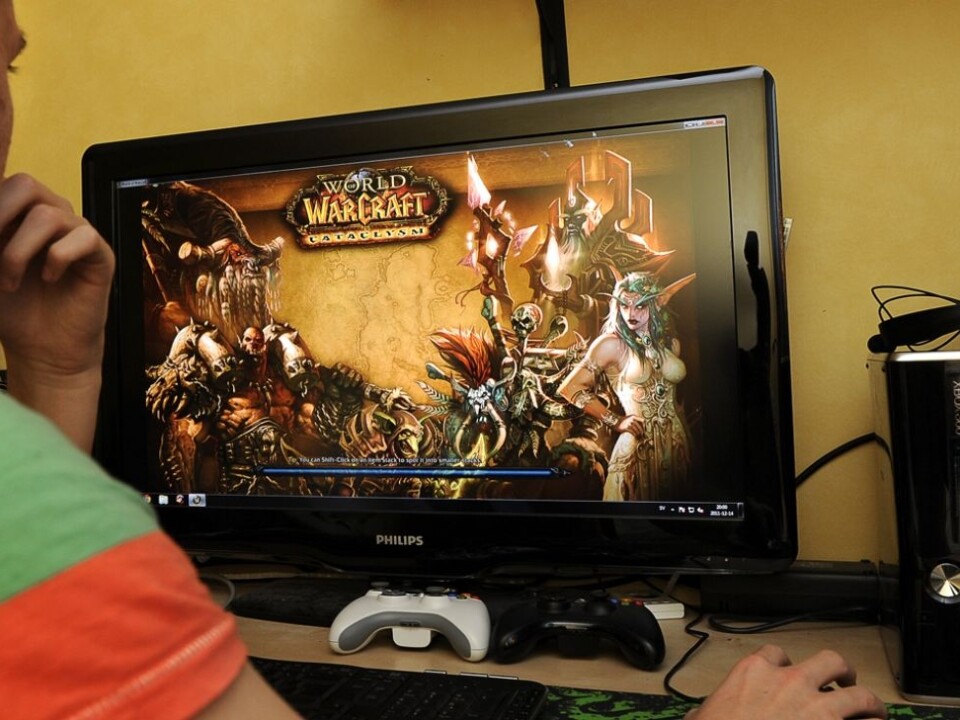
Gaming leads to better English
Youngsters who spend much time on certain computer games expand their English vocabularies.
Denne artikkelen er over ti år gammel og kan inneholde utdatert informasjon.
Children who do not have English as their mother tongue, but spend lots of time on interactive computer games, develop a better English vocabulary than non-gamers.
This discovery emerged in a collaborative study between researchers at Sweden’s University of Gothenburg University and Karlstad University.
Liss Kerstin Sylvén, who led the study, says that extramural contact with the language helps young people hone their language skills. The researcher at the University of Gothenburg has spent years studying language proficiencies among young people.
This latest study focused on younger kids.
Language diaries

She asked 75 children in fourth grade to maintain language diaries in which they made note of their encounters with English outside of school.
The content of these language notebooks was compared to two results of tests of their authors. One was a standardised national survey and the other had more direct emphasis on the kids’ vocabularies.
The children were divided into three categories: non-gamers, moderate gamers and frequent gamers. The moderate group played up to five hours a day while the frequent gamers played even more.
The researchers found clear differences in their English proficiencies. The ones who gamed the most were better at English.

The result tallies well with what Sylvén and her collaborator Pia Sundkvist have observed in other studies: A direct correlation is seen between the numbers of hours the youngsters spend gaming and how well their English evolves.
Role play helps most
Gender differences were also found. While girls spend more of their extracurricular time using social media, the boys tend to occupy themselves with computer games. The girls played and average of 5.1 hours a week gaming. The boys averaged twice that amount.
But not all games are equal. One category improved the kids’ English proficiencies the most – role playing.
“We also find large differences between the sexes in this area,” says Sylvén. Girls generally go for games with a social element, such as Sims. The boys prefer games with role playing.
International cooperation
World of Warcraft and Grand Theft Auto crop up often in the diaries. These are categorised as Massively multiplayer online role-playing games (MMORPG). Online gamers have to work together to solve various tasks and this cooperation in a virtual world often crosses international boundaries in the real world.
Players have to understand and communicate in English to participate in their digital roles. They are constantly encountering new, unknown words.
Because they are highly motivated towards progression in this fictional universe, they need to look up new words they don’t understand. This expands their vocabularies. As boys tend to be over-represented in this category, they also make more headway in English than their female classmates.
Larger study
With only 75 children in the study it has its statistical weaknesses. Sylvén wants to check its validity in a study of far more kids to see if the results stand up.
She points out, however, that they correspond well to what has been observed in related studies.
“The results are reinforced by the fact that this study clearly shares features with previous findings by my colleague and myself. We see this, even though the children in the individual studies have belonged to different age groups,” she says.
Schools neglect games
Although games could indeed help make pupils better in English, schools are not making much use of them. This has been seen in an earlier research project conducted in Denmark.
“We see time and again that schools underrate the extracurricular knowledge that young people acquire,” says Sylvén.
That said, the two Swedish researchers advise against the active use of computer games as classroom tools.
“My colleague and I have discussed this extensively,” she says.
“What counts most for the children is the game. The game is the key motivation that enhances language acquisition, not the wish to improve their English. So I don’t think it would have the same effect if the teachers bring computer games in as an active educational tool.”
They could also be in trouble if they did. For instance, Grand Theft Auto, which is mentioned by many of the 4th-graders in their diaries, is designated for those who are 18 years or over.
The researchers also see that drawbacks for children to spend many of their out-of-school hours playing games designed for adults. The kids can also develop problems such as gaming dependency, depression and a generally poorer performance at school.
------------
Read the Norwegian version of this article at forskning.no
Translated by: Glenn Ostling



































